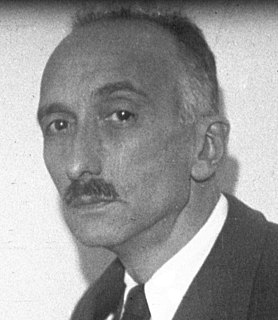A Quote by Jean de la Bruyere
Love has this in common with scruples, that it becomes embittered by the reflections and the thoughts that beset us to free ourselves.
Related Quotes
God’s love sets us free from the need to seek approval. Knowing that we are loved by God, accepted by God, approved by God, and that we are new creations in Christ empowers us to reject self-rejection and embrace a healthy self-love. Being secure in God’s love for us, our love for Him, and our love for ourselves, prepares us to fulfill the second greatest commandment: To love our neighbor as ourselves.
When we accept Christ we enter into three new relationships: (1) We enter into a new relationship with God. The judge becomes the father; the distant becomes the near; strangeness becomes intimacy and fear becomes love. (2) We enter into a new relationship with our fellow men. Hatred becomes love; selfishness becomes service; and bitterness becomes forgiveness. (3) We enter into a new relationship with ourselves. Weakness becomes strength; frustration becomes achievement; and tension becomes peace.
Realize that illness and other temporal setbacks often come to us from the hand of God our Lord, and are sent to help us know ourselves better, to free ourselves of the love of created things, and to reflect on the brevity of this life and, thus, to prepare ourselves for the life which is without end.
We can stop picking on ourselves for picking on ourselvesWe can cherish ourselves and our lives. We can nuture ourselves and love ourselves. We can accept our wonderful selves, with all our faults, foibles, strong points, weak points, feelings, thoughts, and everything else. It's the best thing we've got going for us. It's who we are, and who we were meant to be. And it's not a mistake. We are the greatest thing that will ever happen to us. Believe it. It makes life much easier.
The man who partakes in the breaking of the bread dares to build his house on the very core of love. He becomes, as it were, Godlike, but regardless of the strength he derives from it, his free will remains. We are always free to disown this immense grace, to abuse it. The Greatest Love may be betrayed. Fed on the Living Bread, we nevertheless conceal a part of ourselves which longs for swine's food.
What binds us together is not common education, common race, common income levels, common politics, common nationality, common accents, common jobs, or anything else of that sort. Christians come together because they have all been loved by Jesus himself. They are a band of natural enemies who love one another for Jesus' sake.
Of these five vital principles, Love is the foremost. It is Love that flows as the under-current for the other four values. How does it flow this way? When Love is associated with our thoughts, it manifests itself as Truth. When Love is associated with feelings, it produces Peace. When Love animates actions, it results in Right Action. When Love is combined with understanding it becomes Non-violence. Therefore whenever you feel angry, think of love, develop thoughts of love in your heart. You will have peace.
There is no pain equal to that which two lovers can inflict on one another... It is when we begin to hurt those whom we love that the guilt with which we are born becomes intolerable, and since all those whom we love intensely and continuously grow part of us, and since we hate ourselves in them, so we torture ourselves and them together.
To love very much is to love inadequately; we love-that is all. Love cannot be modified without being nullified. Love is a short word but it contains everything. Love means the body, the soul, the life, the entire being. We feel love as we feel the warmth of our blood, we breathe love as we breathe the air, we hold it in ourselves as we hold our thoughts. Nothing more exists for us. Love is not a word; it is a wordless state indicated by four letters.
Behind all art is an element of desire...Love of life, of existence, love of another human being, love of human beings is in some way behind all art — even the most angry, even the darkest, even the most grief-stricken, and even the most embittered art has that element somewhere behind it. Because how could you be so despairing, so embittered, if you had not had something you loved that you lost?
God never gives up on us no matter how hard we try to get ourselves loose. God does not let go. That doesn't mean he controls everything we do. It doesn't mean he puts a bridle on us and leads us by the nose. He gives each one of us free will and common sense and a spirit that can communicate with his. When we go through afflictions, he allows us to choose our response. But no matter what our response may be, he sticks around to the bitter end.









































